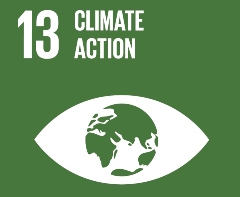
Changing how international policy organisations understand and manage environmental problems
Sustainability policies to reduce climate change have traditionally focused on taxes and regulations. Research at The University of Manchester is changing the debate to focus on the dynamics and drivers of sustainability transitions in energy, food and mobility systems.
This work delivers on the UN Sustainable Development Goal 13: take urgent action to combat climate change and its impacts.
Key facts
- Research has had a pivotal influence on the Intergovernmental Panel on Climate Change
- Research has fed directly into policy recommendations made by the European Environment Agency to the EU and its member states
The necessity of large-scale system transitions
Large-scale shifts in energy, food and transport systems are needed to combat climate change. These shifts involve new technologies, but also changes in consumer behaviour, business models, cultural attitudes, public policies and infrastructures.
Research by Professor Frank Geels at Alliance Manchester Business School demonstrates how large-scale transitions are needed to deliver significant climate change, and frames environmental problems in terms of underlying unsustainable socio-technical systems.
This research has transformed how reducing greenhouse gas emissions is understood and addressed by the United Nations’ Intergovernmental Panel on Climate Change (IPCC), a body of the United Nations that provides evidenced-based advice to governments and citizens to help society tackle global climate change, and the European Environment Agency, a scientific advisory body that provides independent information to European policymakers and the public.
The socio-technical transitions framework
The research resulted in a socio-technical transitions framework that emphasises the role of innovation in socio-economic, cultural and political contexts. The transitions framework has been tested with different historical case studies including: sea, land and air transport; water supply; farming; horticulture; and coal. It’s also been applied to contemporary and future low-carbon transitions in biogas, electricity, renewable energy technologies and auto-mobility.
Professor Geels’s scholarship has been original, interdisciplinary, and rigorous. He has reshaped the research trajectory on sustainability and socio-environmental systems more generally. He, and his work, are increasingly helping to shape the strategic policy initiatives needed to foster transitions toward a low-carbon world, and toward achievement of the SDGs more generally.
William C. Clark / Harvey Brooks Professor of International Science, Public Policy and Human Development
The framework has led to the development of a bridging approach that combines insights from computer models, socio-technical transition research and on-the-ground demonstration projects. By addressing the differing knowledge needs of international, national and local policymakers, this combination of approaches is more comprehensive and useful than a single catch-all approach.
Since 2014, the European Environment Agency has adopted the framework to map the causes of persistent environmental problems, such as climate change, biodiversity loss, and resource scarcity problems. More recently the research has directly fed into policy recommendations made by the European Environment Agency to the EU and its member states.
Providing advice to governments and citizens
The research has also had a pivotal influence on the IPCC. Professor Geels gave a keynote address in 2016 at a scoping meeting of the IPCC for its special report on 1.5 degrees celsius global warming. The report was subsequently strongly framed in transition terms and argued that limiting climate change to 1.5 degrees celsius will require deep and rapid transitions in several systems such as energy, land use, cities, transport and industry.


